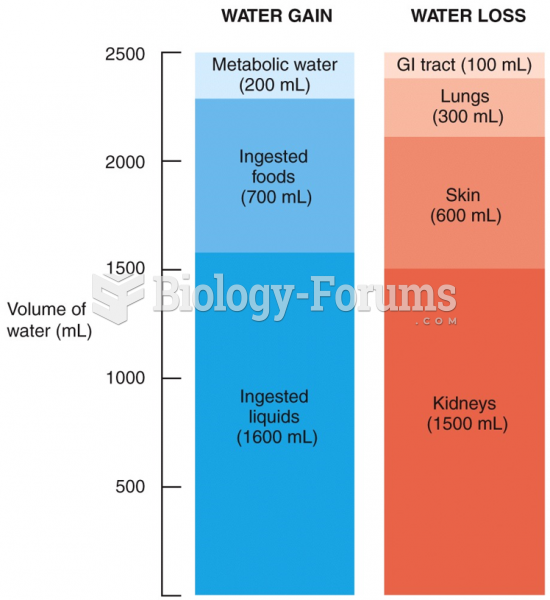|
|
|
The Romans did not use numerals to indicate fractions but instead used words to indicate parts of a whole.
Aspirin is the most widely used drug in the world. It has even been recognized as such by the Guinness Book of World Records.
About one in five American adults and teenagers have had a genital herpes infection—and most of them don't know it. People with genital herpes have at least twice the risk of becoming infected with HIV if exposed to it than those people who do not have genital herpes.
A recent study has found that following a diet rich in berries may slow down the aging process of the brain. This diet apparently helps to keep dopamine levels much higher than are seen in normal individuals who do not eat berries as a regular part of their diet as they enter their later years.
For pediatric patients, intravenous fluids are the most commonly cited products involved in medication errors that are reported to the USP.







